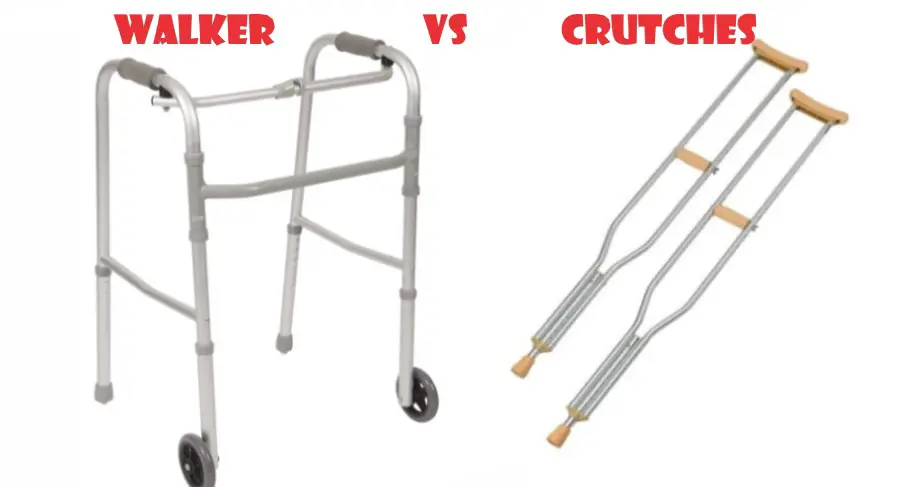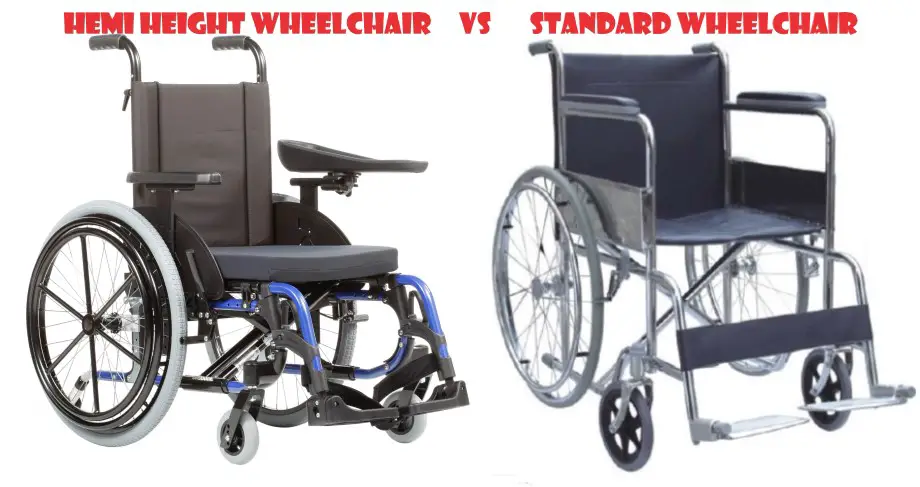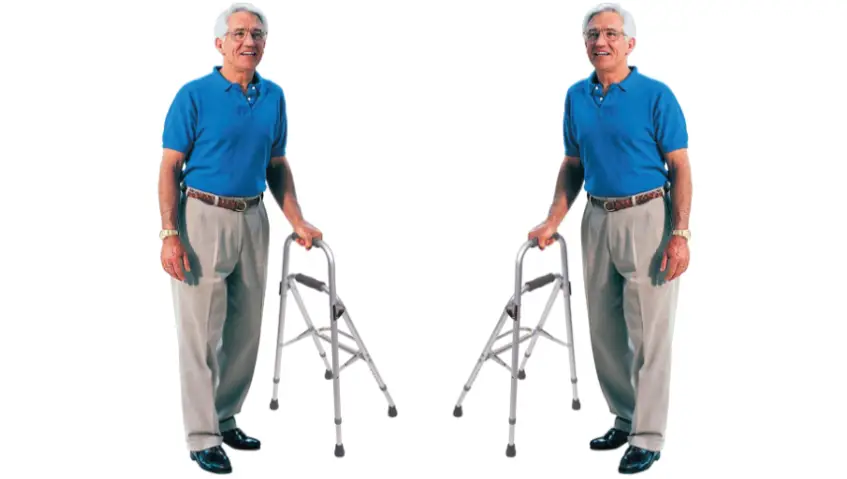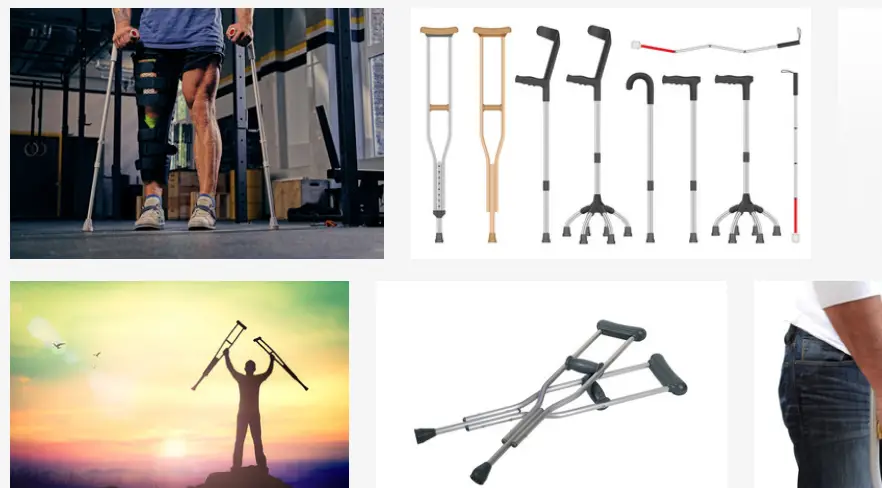I’ve been there and I know how draining it is to decide whether to use a walker or a crutch.
Even though your doctor and therapist are in the best position to choose the best mobility aid for you, you can also determine which one meets your needs.
This article will guide you to choose the right mobility aid for your walking impairments.
Finding the right choice is not just about the device’s functionality, but also the ability to make you feel better and safe. There are a few things to consider before selecting a mobility device.
I’ve mentioned them in this article.
Don’t be in a hurry to leave because that’s your first victory in the selection process.
Table of Contents
- Factors to Consider when Choosing a Walker or Crutch
- Pros and Cons of a Walker
- Pros and Cons of Crutches
Factors to Consider when Choosing a Walker or Crutch
A walker has some interesting features that give you higher stability and maneuverability. But a crutch doesn’t work that way. Instead, it has different types that are specific to different conditions.
Regardless, both devices have their pros and cons, which will be discussed in the latter part of the article. Let’s quickly hop into the various factors considered when buying a walker or a crutch.
Related: Crutches vs. Scooter: Here’s the Right One to Choose
Ease-of-use
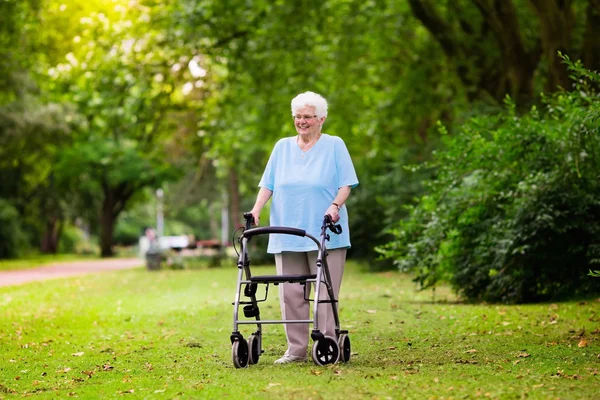
Consider the ease of use before choosing a mobility device. For example, a walker has added features like a brake and a built-in seat that makes maneuverability easier.
A crutch can also be easy to use, depending on your strength, endurance, and terrain.
A walker is easier to use on uneven terrain than a crutch. This terrain will make it challenging for you to stabilize your crutches on the ground.
It’s best to choose a mobility aid that’s easy to use on your terrain and whose features you can handle.
Verdict: For uneven terrain, the walker wins.
Features
A walker works similarly to a rollator, with only a slight difference.
Crutches don’t have added features, just handgrips for relieving pain in the hands. But it’s not so with a walker.
A walker has a break, wheels, and handlebars. These features could make walking with a walker easy or difficult, depending on how you can use them. For example, your ability to squeeze and operate the brakes will determine if you will have a hassle-free movement or not. Also, the seat height could be a problem for you if it does not fit.
Verdict: If you want something more sophisticated, go for a walker.
Related: Forearm Crutches vs Cane: Here’s the Right One for you
Comfortability
A walker or a crutch can be comfortable, depending on the disabled person.
But in all honesty, a crutch seems pretty uncomfortable because it could lead to pains in the hands, armpits, and back area. This is why handgrips are encouraged when using a crutch.
Crutches can cause more pains and nerves damage when used for the long term. As if that’s not enough, traveling with crutches poses a lot of discomfort than traveling with a walker.
It is pretty easy to fold a walker and shove it into the back of your car when going out. This may be impossible with a crutch, although, there are now plastic foldable crutches to this effect.
Verdict: Walkers feel more comfortable
Price
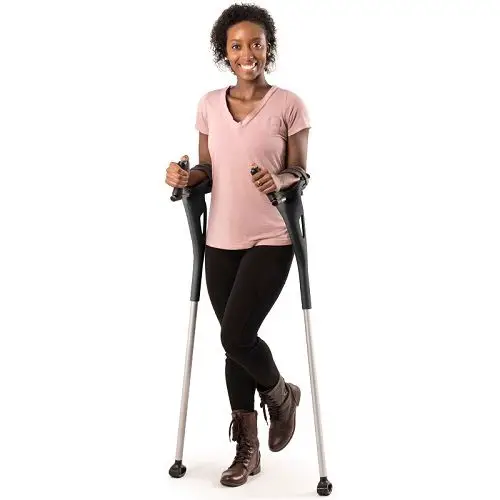
It is well-known that walkers are a bit pricier than crutches. This is due to the added features and increased specialty.
You will find good walkers and crutches of different sizes at affordable prices. Make sure to stick to your budget when choosing which one to buy. Here’s the deal. Buy your walker or crutches from a reputable health facility as it is more reliable.
Verdict: Go for crutches if you have a low budget
Versatility
Talking about versatility, you can adjust a walker to suit your needs. For example, the seat height, handlebar height, and so on can be tailored to your needs.
The height of a crutch can also be adjusted to the height that suits you must.
Verdict: Walkers are more versatile
Related: Wheelchair vs. Crutches: Here’s the Right Choice after Surgery
Your Specific Needs
Some of the questions to ask yourself to determine which one to choose are “Do I have enough space for the maneuverability?” and Do I need to carry things with it?” This will help you to identify your needs easily.
By now, you are probably wondering what I mean by outlining your specific needs. Okay, I won’t leave you hanging because I want you to get only the best mobility aid for your condition.
Now see this: If you stay alone and do most of your chores yourself, like carrying an item, you should consider buying a mobility device that will make it easy for you to work around the house.
It is easier and more comfortable to cook in the kitchen with a walker than a crutch. It is also easier to carry food items with a walker. The best part is that some walkers come with a removable tray and a basket to make carrying items easy.
Verdict: For a lifestyle that requires carrying things, consider a walker
Pros and Cons of a Walker
To start with, a walker gives maximum support and helps people with severe walking impairments. It is strong, comfortable, and great for weight-bearing. However, a walker can be difficult to use because of its added features. It is not suitable for people having minor walking impairments, and it needs more space for maneuverability.
Pros and Cons of Crutches
A crutch is easy to transport and helps with balancing. It is also a good mobility device for minimal walking impairments. Some of the downsides of a crutch are strain, aches, and pains from continuous use. A crutch can also be challenging to use on uneven terrains like beach sand.
